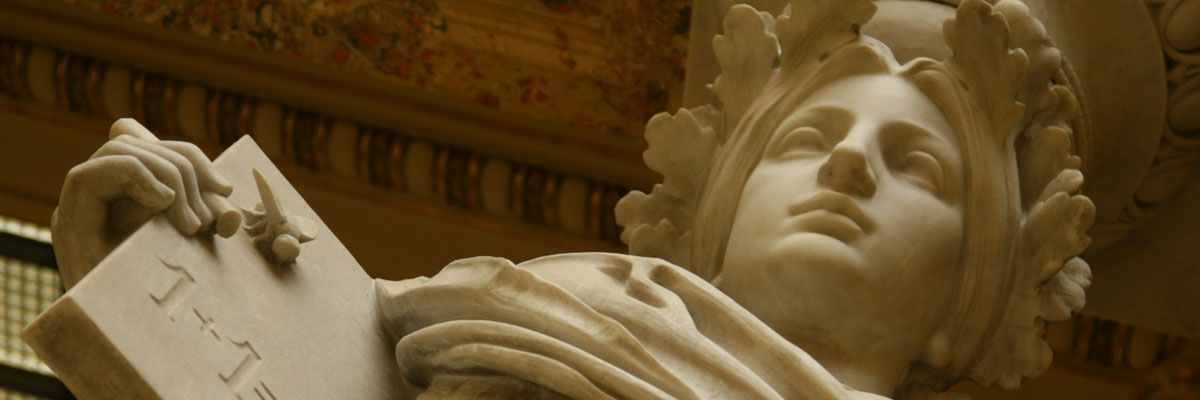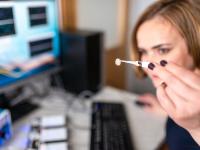
News archive
Search
Selected range: all newsAs a reaction to the invasion of Ukraine by Russian and Belarusian troops and the unprecedented violation of international law, the Czech Academy of Sciences (CAS) will terminate or suspend contracts of scientific collaboration with institutions from the Russian Federation and the Republic of Belarus. It will also stop all other scientific activities realized by any of the 54 CAS institutes until further notice.
The Czech Academy of Sciences clearly condemns the acts of aggression by the Russian Federation against the territorial integrity and political order of Ukraine, which culminated during the early hours of 24 February 2022 in the invasion of the country. The Academy has also decided to offer support. This aid will target university students, postdoctoral researchers, and scientists working in the invaded territory of Ukraine in the form of fellowships, which are currently being prepared.
There is no doubt nowadays that gut microorganisms influence human health. Scientists are trying to find out how communities of bacteria are formed and what impact they have on the functioning of the body and the development of certain diseases. They have therefore developed a laboratory mouse model in which they can precisely control the composition of gut bacteria. They have published their results in the Nature Communications journal.
A whole century has passed since the discovery of polarography, which represents one of the most important Czech contributions to the world science. The method of electrochemical analysis was discovered by Jaroslav Heyrovský, who was awarded the Nobel Prize in Chemistry for it. It allowed to detect even very small concentrations of substances in a solution, and it found its wide application not only in research but also in industry. Nowadays, scientists at the J. Heyrovsky Institute of Physical Chemistry of the Czech Academy of Sciences continue to develop the legacy of the famous scientist.
It does not catch on fire or explode. It is made from extremely cheap and recyclable materials, withstands five hundred discharge/recharge cycles, and its capacity is comparable to commercial nickel-metal hydride batteries. Scientists from the Institute of Physics and the J. Heyrovsky Institute of Physical Chemistry of the Czech Academy of Sciences (CAS) have developed a new type of rechargeable battery that brings a revolution in technologies. It may find application, for example, in the field of solar energy storage.
It started by accident in 2012 – now, it has become a method for finding oil and gas deposits backed by astronomers. Jaroslav Klokočník's team uses satellite data and a correlation between large hydrocarbon deposits and one of the quantities derived from the gravitational field model. The method does not require drilling and could thus inexpensively assist in the search for such deposits, ground water or paleolakes.
Confirmed: the biochip is as fast as an antigen test and at the time as reliable as the PCR method. A team of Czech scientists led by Hana Lísalová has achieved the most crucial milestone in the development of their unique system for the detection of the SARS-CoV-2 virus causing COVID-19. The research of the biosensor, which the system is based on, thus opened new options for further development in this area.
How do plants turn towards the light? Auxin tells them the way. Experts from the Czech Academy of Sciences (CAS) got a novel insight into the mechanism by which plants control the transport of this vital hormone. Two versions of the same protein that work against each other play the main role. Thus, they fine-tune the flow of auxin across the cells so that the plant grows and responds to stimuli correctly.
An effective storage of solar energy, reactions of cells to stress, new strategies against cancer. Those ideas scored well in the competition of more than 4000 proposals and won the ERC Starting Grant. Four Czech proposals succeeded, three of them were submitted by experts from the Czech Academy of Sciences.
It has already been 23 months since the Solar Orbiter spacecraft left the Earth. Now, it enters its main scientific phase and soon, it will observe the Sun and its characteristics from a close distance. This very complex scientific space laboratory carries four Czech instruments on board. Moreover, Solar Orbiter is not the only recent space project with the Czech trace: the JUICE spacecraft will launch to Jupiter soon and Czech scientists and engineers are a part of the mission team.
The Czech Academy of Sciences (the CAS)
The mission of the CAS
The primary mission of the CAS is to conduct research in a broad spectrum of natural, technical and social sciences as well as humanities. This research aims to advance progress of scientific knowledge at the international level, considering, however, the specific needs of the Czech society and the national culture.
President of the CAS
Prof. Eva Zažímalová has started her second term of office in May 2021. She is a respected scientist, and a Professor of Plant Anatomy and Physiology.
She is also a part of GCSA of the EU.









